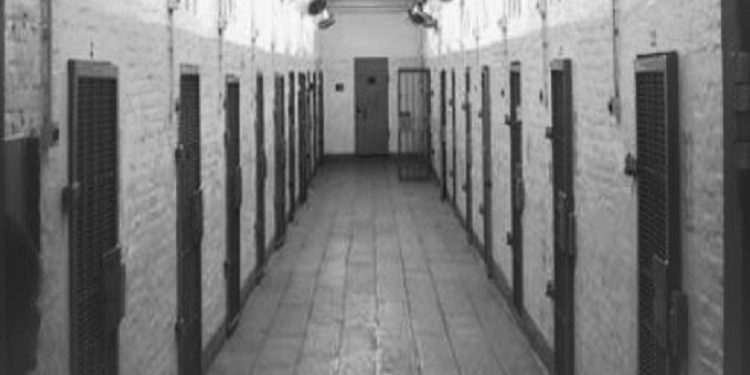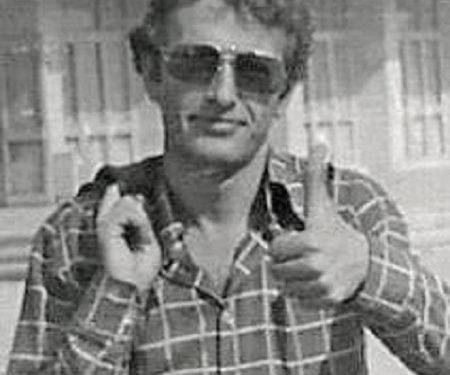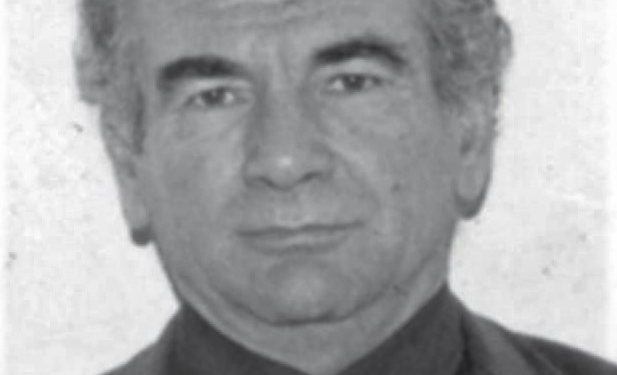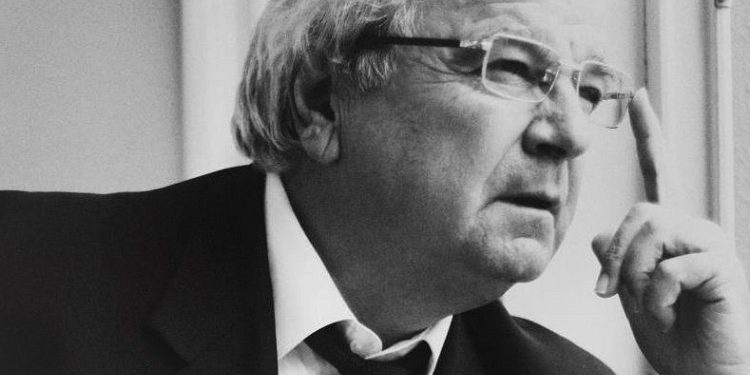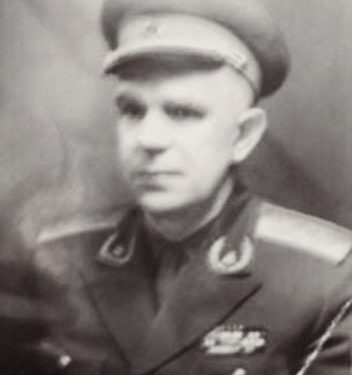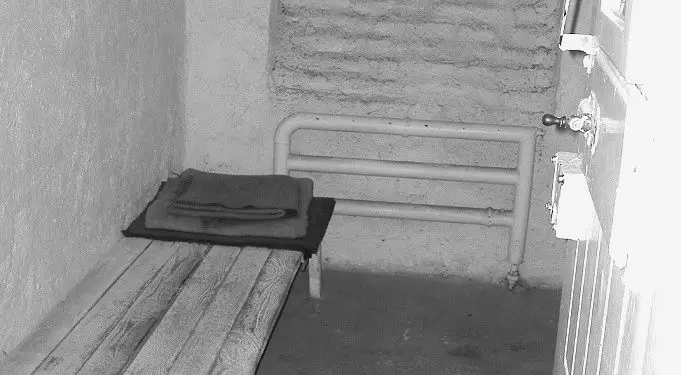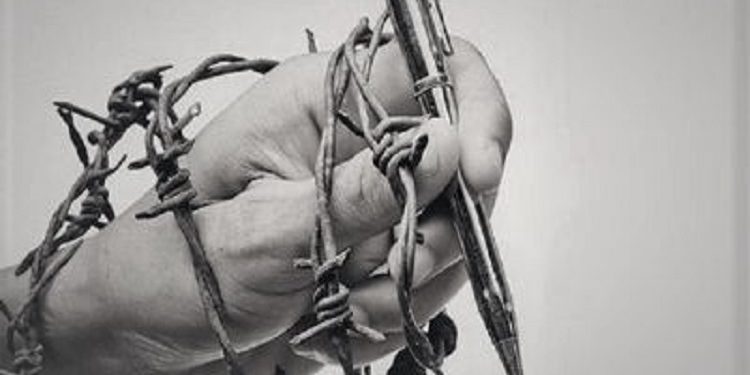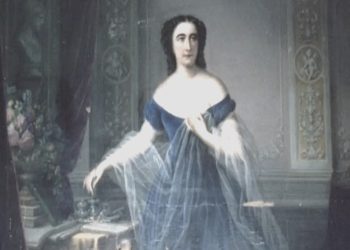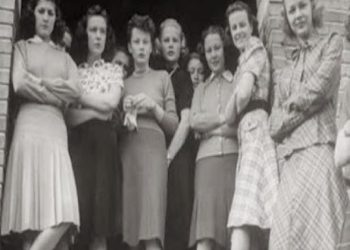By Maksim Rakipaj
Part seventeen
Memorie.al/ Maksim Rakipaj, originally from Përmet, whose family had helped and supported the Anti-Fascist National Liberation War, after graduating from the Navy School in Vlorë, in 1972 he was appointed an officer in the Merchant Navy, where he served with dedication until in 1977, on the “Durrësi” steamer, he was arrested and sentenced to 15 years in political prison, as part of a “group”, which also included his colleague, Aladin Kapo, the son of Hysni Kapo’s brother. Family biography was also the reason for his punishment. After the end of the war, two of his uncles were sentenced to political prison, his grandfather was declared a kulak and in 1976, his father was expelled from the party. Maksi began serving his sentence in the Ballsh camp and in 1979, he was transferred to the Spaçi camp and then to the Qafë Bari camp. He was released on September 12, 1984, benefiting from a reduced sentence, from an amnesty. After being unemployed for a long time, with many hardships, he got a job as a miner in the Mzezet mine, he worked until 1991. After the 1991s, he started working in the administration of the Municipality of Durrës, he served until 1997 and after that, he returned to the Merchant Navy (the last captain of the transoceanic ship “Vlora”), until he left Albania for Italy, (illegally on a dinghy), where he currently lives for many years. Since the 90s, in addition to various jobs, Maksim Rakipaj has also devoted himself to writing, such as; poetry, prose, fiction or documentary, translations, etc., publishing several books, such as: ‘Prophet – Khalil Gibran’, (translation from English ‘Toena’ 2003), ’20 love poems and a song of sadness’, (translation from Spanish, ‘Toena’ 2003), ‘Alive after the shipwreck’, (published by ISKK, 2014), ‘Bukowski – poetry’, (translation from English, ‘ENEAS’, 2015), ‘Trilusa m’Tirône’, ( translation from Italian, ‘UEGEN’, 2015), ‘Anthology of Arabic-Persian Poetry’ (English translations, ‘UEGEN’, 2015), ‘The Complete Sonnets of Shakespeare’, (English translation, ‘ADA’ 2016′) , ‘Survivor’ (autobiographical novel, ‘2 East, 2 West’ 2018), ‘Nobelists – poetic anthology, (UEGEN 2019), ‘Hymn of happiness’ (‘JOZEF’ 2023), etc. From the creativity of Mr. Rakipaj, Memorie.al is publishing the book “Survivor”, (published in 2022 by “JOZEF” Publishing House in Durrës, directed by Mr. Aurel Kaçulini), where he has described his life chronologically, where the part the main one is that of serving the sentence in camps and prisons, as well as various characters, his co-sufferers that he met in the communist hell, etc.
Continues from last issue
(self) The murder of Mehmet Shehu and the consequences
…December ’81. I’m on the second shift. I have taken the hand of the hammer. Even with weaponry, I don’t have as much trouble as before. I am no longer the last one to leave the gallery, as I was at the beginning. Tonight I finish early and am the first one out. The third round has arrived at the square in front of the gallery of area IV. First, I get one that works on the surface. I don’t have conversations with him at all; there are others like me who avoid him. But this one speaks to me tonight, as if I were an old friend:
– “Did you know?! Mehmet Shehu died, he killed himself! The most beautiful thing, the TV put on a program with crap, how long did the news end…”?!
I wave my hand annoyed, as if to say “I’m tired, I don’t care” and look for a friend. Here, one of them: Ron Çobani from Libohova.
– “Ron, what do we have from camp”?
Ron, raise your head:
– “Hey, Max, are you tired? Oh, you didn’t understand?! Mehmeti, according to the TV, took it away from himself and after that party on TV. As if they were looking forward to this! I’m gone, good night!
– “Night, Ron.” Get out safely! I’ll wait for you tomorrow when you come back; let’s drink some coffee together with Halil Lazen and chat”.
The camp was buzzing with discussions. More than when Hysni Kapo died. Then it was discussed more when, after his death, the Enver-Hysni exchange of letters was published, to fill the mind of the “cattle”, that it was not Enver, Nexhi, Ramizi who killed him. But this brave man killed himself tonight, with two bullets?!
– “The first clean murder, of Mehmet Shehu – says Halil Lazja laughing and continues – if he really killed himself”!
However, the general idea is that changes are expected. There is something behind this murder. In one group, even the possibility of overthrowing the power of Enver Hoxha is discussed. By whom? When?! A former ball player speaks almost wistfully: “When we take power…”, but does not let Spartak Ngjela finish his speech:
– “You are very wrong, sir. Never, you do not have the power. WE will always have the power! Your mind is lying to you. The world was divided by the Peace Conferences after World War II. The American, the English, they gave us to the Russian, in exchange for Greece! I don’t know if Enver Hoxha will be in charge anymore, or not, I can tell you this, that he will be a communist in charge”!
A few months passed and nothing happened. Enver killed Kadri Hazbiu, along with a few others and that’s it. Only life in the camp became freer, foreign languages were allowed and books were more freely available. They were no longer doing re-sentences. Word began to spread about an amnesty. Meetings with family members were also held inside a room, not as before, on foot, at the large gate of the camp. Hope, which had never died in the hearts of the prisoners, began to bloom again.
In this situation, on a Sunday morning, they ask me to go upstairs. I don’t expect anyone to come to me, from the family. The policeman escorts me to the room where, a few months ago, I met Kujtim. I go inside and see Ramadan H. or “Miklovani”. Next to him, the constant Shyqyri Toska. “Miklovani” smiled warmly at me, but did not move from his seat. Without the operative. And this one: “This is Maksim Rakipaj, friend Ramadan.” I didn’t speak.
– “I see. Tell me something about Max or Shyqo. Sit down, sit down”! – He spoke to me.
– “Now, friend Ramadan, after the meeting that Maksi had with friend Kujtim, to be honest, Maksi behaves well, but…”!
– “Who is this Memory”?!
The operator spoke something in his ear.
– “Okay, I got it, go on, and stop talking…”!
– “Here, I wanted to say this, friend Ramadan, how to say it… er… that…”!
– “Yes, bring out the desert”!
– “Here, friend Ramadan is not helping us. And if I tell you, it will not help us. If he likes it, he does a lot of work for us…”!
I put my lip on the gas. Ramadan frowned a little and spoke to himself:
– “Hmmm, I understood. Max, I have mine, Shyqo. And you, Max, don’t knock my teeth out when the Camp Operative speaks. Maksi, I have moved from Tirana to Rrëshen. The party is thinking of doing something good, even for you in prison. Don’t blacken my cheek. Keep hanging out with good friends; don’t change the ones you have. No young people. I met Xhafer, a couple of weeks ago, it was good. There is only your concern. If I have the chance, I will help you. Do you have a problem”?!
– “Tell them to take the hammer away, this miner’s work took my soul out.”
– “Good”. Did you hear, Shyqo?!
– “How does friend Ramadan order”!
…and until the last day of prison, I worked only with a hammer. Even after release from prison!
One of my friends asked me if I have seen or met that Ramadan. No, I haven’t had a chance to see it. But in June ’85, about a month after I started working in the Gërdec mine, after being released from prison, my father met him by chance in Shkozet. They met as old friends. The father invited him home:
– “Come on, I have a reason, Ramadan.”
– “With all my heart, Xhako, but I don’t have time, I’m waiting for the car.” I was fired from my previous job, now I am a supplier of workers’ canteen in Rrëshen. Why don’t you tell me, what was the reason?”?!
– “Congratulate me on Max’s release.”
– “Ooo, I’m so happy! When like that?! Has the work started?! I can’t come home, forgive me, Xhako, because my car ran away with all the goods. Let me rent you this coffee here, because I left it here with the driver. In the mine, you said, has it started?! Well done! I mean, I had a good time. They eat them; they have nothing to do with them anymore. Is he in good health? That seemed a bit weak to me then. Still, ama, it must be preserved. The first time, they really put him in prison for nothing, but now, he should open his eyes.”
– “Even you Ramadan, you say that they put him in for nothing…”?!
– “I say what you have to do with him, that I signed for Max’s arrest”.
– “What…?! Even give me your hand, without a hint of shame…”?!
– “Listen to me, and then judge me, O Xhako. Maksi, Aladdin and others, who go abroad and are cadres with higher education, are the nomenclature of the district Party Committee and the Internal Branch, is obliged to get the approval of the special group in the Ministry of Internal Affairs. Nevzat Haznedari and I were part of that group. The first secretary was Mihallaq Ziçishti. He couldn’t bear to sign the arrest of Hysni Kapo’s nephew. Hysniu was number 2, he came after Enver Hoxha, you know. A great game was played.
Nevzat calls me, what do you say, in the middle of the night. They started quickly, he says, because the work is not waiting. Vaita. Tym Nevzati. They have played a trick, those members of the Durrës branch; they want to arrest the nephew of friend Hysni. But there is also a certain Maksim Rakipaj with him, whom I do not know. You have been to Durrës, you know it? “Yes, you did,” I say, “I don’t know him.” I know him and put my hand in the fire for Max. His father was a partisan in the 6th Brigade, wounded twice. Xhaferi’s garden, I have a cousin. Nevzat was pleased. Then, okay, we don’t have to sign it. I’ll be in Durrës, I’ll give you the cups.
The nephew of friend Hysni is arrested?! Who did he kill?! Hatana had done, put a month in the madness and that’s it. We agreed to close it with Nevzat. He returns the proposal for arrest to Durrës. The next day, he called me again: Come Ramadan. As you command, I came. I found it in the office; it was soot from the muzzle. Na, he tells me, sign what we tore up last night. He called me himself, Kadri Hazbiu. Mihallaqi had entered Hysni Kapo’s office himself. Comrade Hysni had said that the law should be enforced. We sign it, we put it in, Nevzati told me. Then, Kadriu himself signs it. We have nothing to do, we will sign it. We signed it, Xhako. Tell me now, am I guilty or not”?
– “No, – said my father – I have nothing to say”.
They drank from a glass and parted. I haven’t heard of “Miklovan” anymore. Mihallaq Ziçishti’s arrogant request, made to Hysni Kapo, for the arrest of his nephew, also marked the latter’s fate. Mihallaq was sentenced to 25 years in prison, while his brother, Llambi, who was the Minister of Health, was shot. Hysniu died in a clinic in Paris.
The official news, that; “pancreatic cancer”. Another nephew of his, his sister’s son; married to Xhelil Gjon; he was the minister of the interior, a socialist, in one of the governments of the “democratic” period. When the opposition press accused him of embezzling funds, about five million dollars, they fired him and… Sent him abroad with a scholarship. Another nephew became the Minister of Foreign Affairs, in the socialist governments, after 2013. The other nephew, Aladdin, who was convicted with me, is in Italy, a refugee, since 1991. He was never treated, like the other nephews, to Enter Kapos…!
Literature in prison
After the incident, which was officially called the suicide of Mehmet Shehu, it is true that in Spaç, there was a tension. Books were allowed in, foreign languages were allowed, and a kind of “softening” was observed by the camp command. Hope, who had never been extinguished, was revived among the prisoners. The book “Palace of Dreams” by Ismail Kadare entered the camp. His brother brought it to Visar. Being his close friend that I was, I read it right after him. Visar has an idol. Zydi is angry. I have friends with both of them, Visar and Zydi. I have always liked Kadareja, she writes beautifully. But “Dream Palace”, opens a lot of debate here. The allusions that Kadare makes are powerful, bold.
– “More openly than that, there is no way to write”. – says Visari
– “The comparison of the ‘Palace’ with the Ministry of the Interior speaks for itself…! Here, Abu Qerimi, goes to the big square, in the center, leaves the monument of a hero on horseback and turns to the right, to enter the dark, mysterious Palace of Dreams…! What more do you want?! That is to say, that; cross the square in the middle of Tirana, leave the Skanderbeg monument and enter the Ministry of the Interior? Let then, the words that are circulating, about his arrest, wait for a day when he comes to Spaç”.
Since I was little, I liked poetry. My father always bought me books. “Chestnut forest” by Lasgush, “Germany, a winter’s tale”, by H. Heine, etc., was my favorite books in adolescence. But over the years, very few poems of value were published. It was the time of “fanfare poets”, if I use a comparison of Kadare…! The poetry of Visar, Zydi, familiarity with English, Italian poetry, etc., revived my love for poetry. Visar wrote in his memoirs about the prison, how he managed to get his creations out of the Qaf-Bari camp.
He took a risk, but he got them out. Only I knew. We were both, when he hid them in his shoes, to give them to his brother, at a meeting in Qaf-Bar. When I was released, I left Visar in prison. I went to Lushnja to meet his family. I found a chance and asked Iliriani, his brother, about those poems. He became clueless: “I don’t know anything, what poems are you talking about”?! It was the end of 1984, he was not at fault. I told him that I didn’t want to know where he kept them, but I ordered him to keep them with be careful, because those poems belong to all of Spaç, Qaf-Bar and not only them; they belong to all political prisoners and one day, they will be published. Among his first books, which were published, was: “Throw a skull at your feet”.
I have it with his autograph. There are creations of Spaçi and Qaf-Bari. I had read them, in some manuscripts, on pages dusted with mining dust and soaked with sweat. But that, far from it, they could have been soaked with blood, with the blood of the poet’s tribe, with the blood of the tribe, the real Prometheus, not from…!
Punishment dungeons
After the contact, not at all friendly, with Vangjel L., the operative Kosta Prifti and the envoys of the Durrës Branch, I expected that my situation, in the Spaçi camp, would worsen. Under the “care” of the policeman Pjeter Koka, they move my mattress, on the top floor of the 3-story beds, right under the architrave. Pjerini, the Shkodran who sleeps to my left, often tells me: “Kadal, Max, you’re saying it with your nose, architraun”! I can’t sit still in bed, from the architrave, and when I have to write, I go to Pierre the Red-Haired’s mattress.
It is impossible to change the place you are assigned for the mattress; at the foot of the bed, the name of each of us is written, so that the police can easily find you at any hour, even at night. I have decorated the top of my bed with pictures of animals, which I get from the magazine “Science and Life”. Animals, such as crocodiles, snakes, lizards, scorpions, etc., are my favorites. Dirty, bloodsucking, reptilian animals, a total of 13, what is the number of members of the political bureau. When I was transferred to Qaf-Bar, Pjerini inherited the “Bureau”, and even filled it with the figures of the Bureau’s candidates.
I try to follow all the rules and schedules of the camp; I try my hardest to do the norm every day, just to avoid the dungeon punishment. The dungeons of Spaci are terrible, small: two and a half meters long, one meter wide and two meters high. In the winter, they leave you alone in the dungeon, without any sweaters, no hats, just the dock suit, panties, T-shirts, which gives you command and a pair of cotton socks. Think of spending a month in winter here, in temperatures that go below minus 10-15 degrees C.!
The food in the dungeon is: breakfast a curdled, cold juice of onions or tomatoes; at lunch a soup, where a few threads of macaroni float, some grains of rice or grosbean husks; at dinner tea, which is water colored with burnt sugar, and three thin slices of bread. In summer, it’s even worse. In that narrow space, where you can’t breathe even if you are alone, there are five, six, even eight people. The dungeons are built in a pit behind the warehouses, where are the prisoners’ loot and the shop, which opens once a month. I will also talk about the store, below. We are now at the four dungeons of the Spachi camp. I’ll try the dungeon once, even though I’m very careful.
…The reasons for punishment with a dungeon are various: not meeting the norm, a fight between prisoners (fights between prisoners are rare in our country), non-compliance with the internal regulations of the camp, and this regulation code, it depends on how interpret the service police or, the officer of the watch. It is enough for a policeman to give you the evil eye and you have secured the dungeon. The operative, who is the camp’s Security officer, has the lion’s share of the punishments in general. Zydiu spent last January, a month in the dungeon. The cold goes even lower than minus 10-15 degrees C. He has been running for a month, within two meters of the dungeon.
When he stopped running, exhausted, he turned to stone from the cold. He was alone in the dungeon, through the cracks of the wooden door; the wind blew in the frozen snow. At night it was impossible to sleep, covered with a thin, almost transparent blanket. When he came out after a month, he was skin and bones, but the baby never left him. You miss the care of your friends, in these cases. We counted the days. 17, 16, 9 days left. Attempts to insert a blanket, or sweater, are always futile. The policeman Pjeter Koka is not broken. Nor Preng Rapi. No one. Finally, the monthly deadline is met, the friends cook in the private kitchen, the best things they can. They take out from the bags what they have saved, from what the family has sent them…! All these, make you save from punishment with dungeon. I am also careful.
…The end of July 1980, it’s very hot. The mountain, bear of vegetation, reflects all the heat on the camp. Sunday morning. The lining falls on the terrace of the camp. In five minutes, we are all on the terrace, baking in the sun. Opposite, on the balcony of the first floor, the head of the camp police, operative Kosta Prifti, and several policemen can be seen. Kosta makes a sign to the policeman Pjeter. Peter immediately approaches him. Kosta whispers something in his ear. The chief of police reads a command order. No one can move without the command: “Disperse.”
Policeman Pjeter runs towards the terrace, followed by two other policemen. Policeman Pjeter approaches my line, with his index finger in front: “You”! And stops in front of me. “Why are you sitting in the row, you damned one, when the orders of the command are being read?! Hurry up, run, run, run, and run! Mask, criminal”! It doesn’t give me time to excuse myself, I don’t have time to tell him that I follow the rules and I’m afraid to break them, that I did a military school and I know that when you’re in line, you can’t sit down and I never In my life, I have never sat down when I was in line. The smile of operative Kosta Prifti makes me understand that it is not a matter of lines.
They tell me the punishment: 30 days. After me, two others come: Petrit Karazi from Tirana and Ferit Lopa. The next day there were 5 of us in the dungeon. 6 to the next dungeon. Two dungeons are empty. Luckily, I have Ferit the Cow in the dungeon. Feriti has everything with him, who addresses everyone, with the phrase; “our hand”. Despite all the fine body checks they do before entering the dungeon, Feriti has with him over 200 grams of tobacco and tobacco papers, a razor, a knife, a flint. It’s like a magician Feriti, a movie can be made with his figure, a tragic-comic movie.
Give us all cigarettes and light them for us. He makes xixa with the razor and flint; the sparks ignite a black ash. The black ash is what remains from the burning of a clean, white cloth, which Ferit, the hell knows, where he hides…?! It also teaches us the art of lighting a cigarette without a match. The heat takes our breath away. We decide not to smoke, all at once. The night is more severe, when all the heat that the roof has received during the day is released. The dungeon was no more than 1 meter and 60 cm. wide; five of us are too many. But “thinks” the command, for our relief. In two days we will be seven.
Do not think that I have done any great heroism. Asllan Togu, spent 11 months in the dungeon, Hiqmet Myzyri 8 months, Spartak Ngjela, poet Gëzim Medolli also did a lot…! According to the regulation, the maximum sentence was 30 days in prison. But they had found a way around this too. They would take you out for lunch after 30 days and put you back in the next morning. Nothing prevented them from repeating the same thing, after another 30 days…! Memorie.al
The next issue follows




